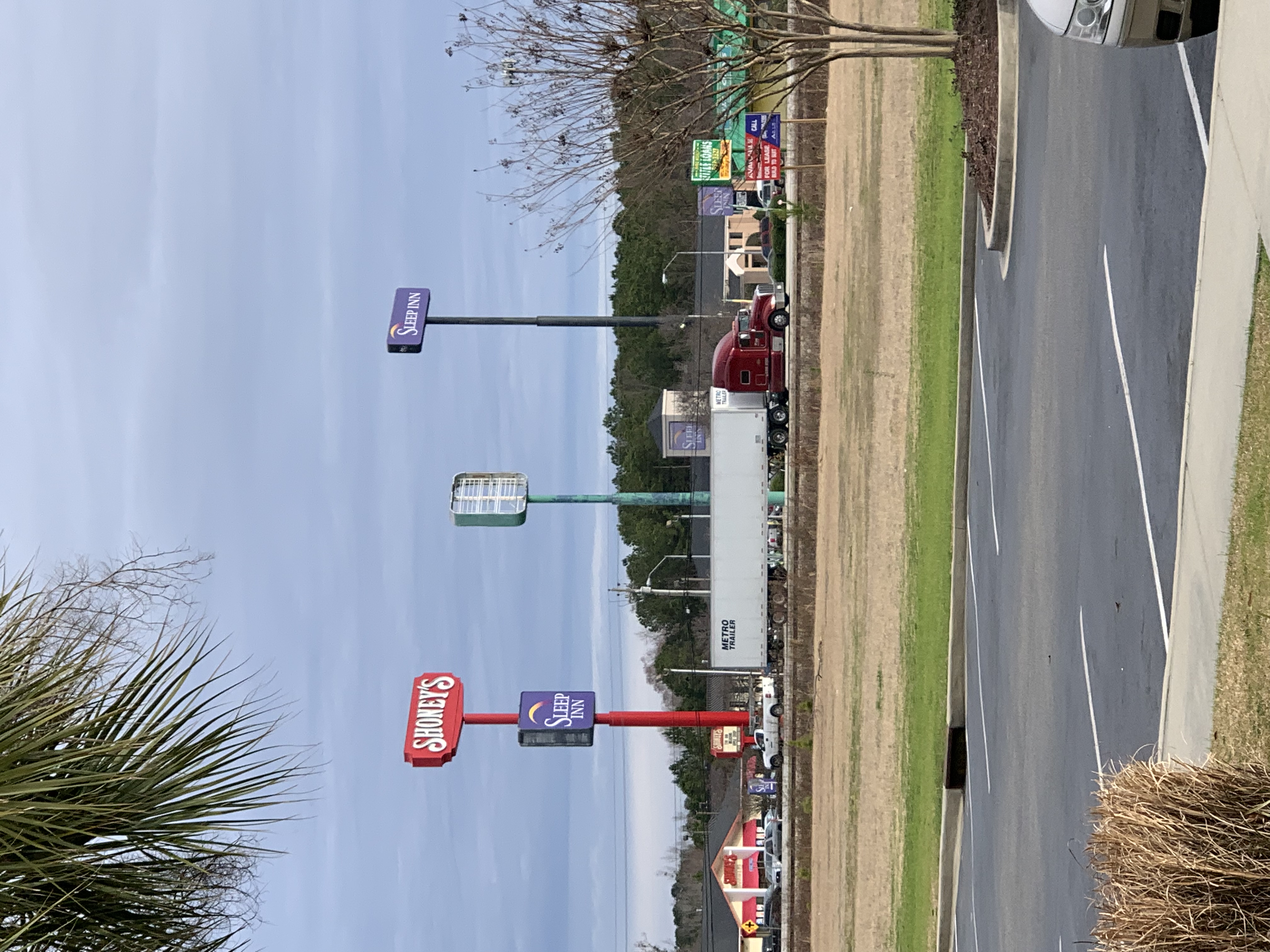Focus ain’t a 4-letter word, but it should be
Big old wall of words coming at you to talk about writing, and planning, and doing both poorly, and also an update on the sad but inevitable fate of Happy Friday. Take a look, if you dare…

Arizona
Longtime readers — and you know who they are because they’re the ones who run in the other direction at the first sign of the phrase “longtime readers”; I mean, Carolyn’s read so many of these things I think she gets on a plane to another country any time I start a paragraph with the letter L just to be safe — may recall back in 2015 when I tracked my daily writing with a countdown from January 1 to December 31. When that ended, I still tried to keep up the daily schedule but missed a day sometime in January, then missed another day, and eventually lapsed back into my usual writing schedule of doing something when I felt like it or when I had a deadline.
Which is why when 2017 rolled around, I did the same thing. I wrote every day and did a little social media countdown to keep myself honest. And again, on December 31 I stopped, figuring I’d made my point. And maybe I did, because this time I didn’t stop the daily writing. Sure, some days it was revising old stuff instead of all new writing. And some days it was a few sentences or paragraphs. But other days it was a couple thousand words. The point is, I didn’t stop when the countdown stopped. I still haven’t stopped. I’ve done something writing-related every day since January 1, 2017. This had been good and bad.
It’s been good because, hey, it’s always good to get the words down on paper, or on the screen. But it’s been bad because it’s hard to stay focused every day. It’s hard to stay goal-oriented when some days you’re just too tired to put the words in any kind of order. It’s too easy to focus on whatever you’re working on at that moment without seeing how, or even if, it fits into some bigger plan. It gets easy to abandon any sense of a bigger plan because you can always say you’re working every day and therefore of course you’re being productive.
But over the last 2+ years, I realized that the daily work is worth a lot more if it’s directed at a specific goal. It doesn’t mean I’m any better at doing it that way, but at least I know when I’m doing something constructive and when I might just be spinning my wheels, and that’s a start.
My pattern for the last couple of years has been pretty consistent. I shoot for a story for The First Line every quarter, depending on what line they’re offering, though usually I take a shot no matter what the line is. Sometimes I just don’t end up with a complete story, and whatever I wrote sits unfinished in the archives unless and until I find some way to repurpose it. I also try to shoot for The Last Line and Tales from whatever industry they’re highlighting that year. This keeps me working on at least 6 short stories a year, and I usually find another couple of places to submit to, which helps to give me things to focus on.
I also do NaNoWriMo every year, which forces me to bang out 50K words in a month. I’ve written several awful books this way, and I’ve also written a couple of books that might be worth something if I put in the work. And that’s been the dilemma I’ve faced the last few years. Do I bail on the short stories and put in the time on one of these novels, or do I stick to the somewhat instant gratification of the short stories and hope that somehow I’ll squeeze in time for one of the novels someday? The last few years I’ve mostly been doing that second one, and it hasn’t really worked.
So when it came time to figure out the plan for 2019, I thought I’d put the short stories aside for a bit and focus on a novel. Last year I’d picked this space opera thing that was mostly a love letter to the Star Wars and Star Trek of my youth and that wasn’t completely awful. To fix it I’d need to do a lot of world building and to be honest I got lazy about it. Instead I moved to another book that was kind of a suburban noir. It also needed work, like it needed at least one new character added in there so that the ending made more sense, but that level of work seemed a little easier. So I picked that as my 2019 work.

Punch it, Chewy!
Then, while flying the red eye from Arizona in early January, I had an idea for a project. Four parts, spread out over the year. Four stories. All stand-alone and all taking place in Arizona. I sketched out a few ideas and went to work, because the first story had a February 1 deadline. I started a story, ran out of steam, started a second story, ran out of steam, figured out how the first story was supposed to go and went back to that, all while trying to live a life and do my day job.
It didn’t work. I was still standing up and punching as late as 11PM on January 31, but I just couldn’t make the deadline. So now I have to decide if I walk away and go back to my original plans for 2019, or if I take a crack at the next story anyway and see if I can make it work with a decent amount of time to dedicate to it. The cool thing about the idea, for me, was that the stories would be stand-alone, but when they were all finished, I’d add some common thread to the ones that didn’t sell and maybe try to self-publish a little novella. And that’s the thing that keeps me considering this idea at all after last month’s failure.
I’ve still given up on any other short story work for the year unless some amazing idea comes to me, because it’s past time to get serious with editing and revising one of these novels to try and sell. I’ve done some work on that suburban noir already, and that space opera thing never completely leaves my brain, so I’m gonna devote some time to that one as well. The goal is to have at least one of them more closely resembling an actual book by the end of 2019. There’s still a ton more that would have to be done after that, but it’s a huge first step I’ve never quite achieved before. Now I get to see if I can do it.
Of course, if the opportunity to write a reboot of happens to come up, all these plans get thrown out the window, so if you’ve got any casting ideas for 2019’s Sheriff Lobo, feel free to send them my way.

Hey there, where you goin’…
The problem, though, is my brain is like a magnet for questionable story ideas, and just last week something I wrote to someone in an email got me thinking, and now I have several pages of notes I’m writing to try and convince myself to write the damn thing, or to not write the damn thing. It’s kind of hard to tell sometimes. All of which is kind of a long way to say that planning is hard and almost never works. There’s a little free hard-earned wisdom from your Uncle T.
And since people have asked, I suppose I should give an update about the only writing of mine some of you folks care about. Happy Friday. People want to know if Happy Friday is ever coming back. And the answer is that I used to think it was, but since it’s been dead and gone since Trump’s 100th day, it seems obvious that Happy Friday is official done for. It had a good run but everything has to end sometime, and that last Top 100 List was as good a way as any to wrap things up. So yeah, Happy Friday is finished. More than wenty years, on and off, is nothing to sneeze at, but that’s enough. If I was ever gonna write a funny joke, I’m sure it would’ve happened already. So Rest In Peace, Happy Friday.
Which, of course, means it’ll be back at some point to cover the 2020 election season. I’m feeling pretty confident this election is the one that’s gonna finally break this country, and I would hate to miss out on that. So I just have to get some momentum on the fiction writing and then we’ll all get to see if I’ve got anything left in the tank to document the absolute fucking circus I expect 2020 to be.

2020 is coming…
T “this was way too many words to have to read on a Monday morning so I don’t blame all of you for never making it all the way down to here” green

